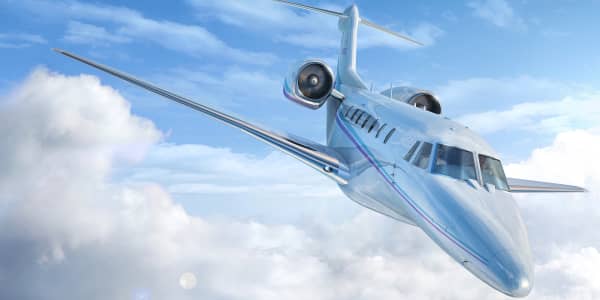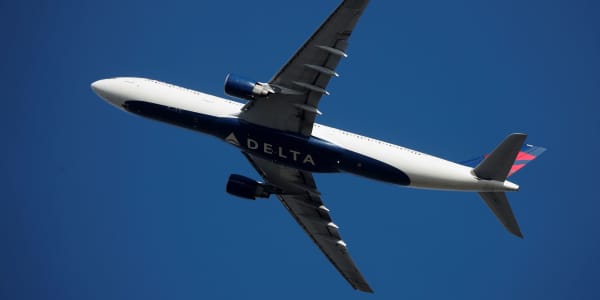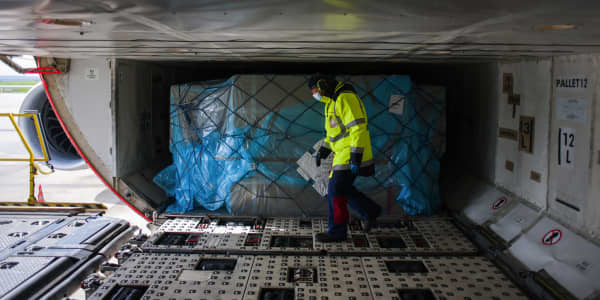There's exceeding expectations, and then there's exceeding expectations. On the opening day of the Dubai Air Show, a record $192 billion worth of orders were placed, with the Gulf carriers dominating, and Boeing beaming at its new launch.
American aircraft manufacturer Boeing kicked off the show on Sunday by announcing 259 orders for its new 777X, totaling over $95 billion at list prices.
The three major Gulf carriers - Etihad Airways, Emirates, Qatar Airways - and German airline Lufthansa all placed orders for Boeing's new 777X aircraft, representing the largest product launch in commercial jetliner history by dollar value. Lufthansa ordered 34; Etihad chose 25; Qatar ordered 50, while Emirates placed a bid for 150 777X aircraft.
(Read more: Airbus highlights challenge with Dreamliner rival)
Speaking as the order was announced, Boeing Commercial Airplanes President and CEO Ray Conner, referred to the 777X as "the largest and most-efficient twin-engine jetliner in the world."
"Its ground-breaking engine technologies and all-new composite wing will deliver unsurpassed value and growth potential to our customers," he added.
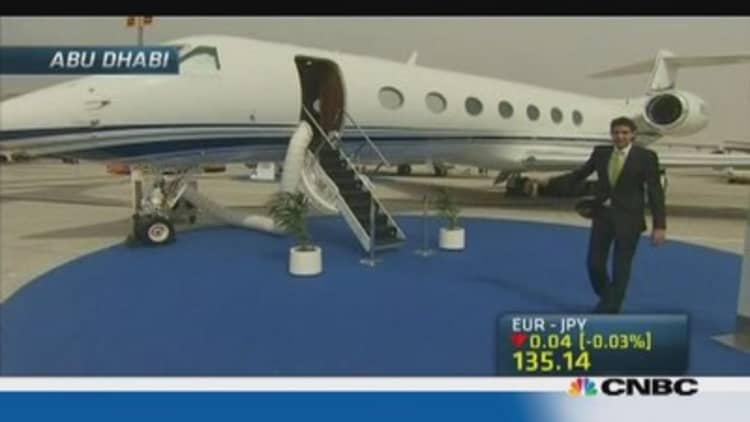
Michel Merluzeau, managing partner at G2 Solutions, told CNBC via email that Boeing had a "perfect launch day" for the 777X, "one that comes once every decade or so."
He continued: "The 777X is building on the 787 experience and the maturation of that aircraft's technology and industrial processes."
However, while Boeing will be pleased with the 259 orders for its new aircraft, it still has to deal with the issue of where it will build the 777X, which is slated for first delivery in 2020.
(Read more: Despite fire, airlines flying Boeing's Dreamliner)
A Washington state union rejected a labor contract last week between Boeing and leaders of the International Association of Machinists (IAM) that would have kept the production of Boeing's wide-body aircraft in the Seattle area in return for lower benefits for workers.
Boeing has said that it is keeping "all options open" regarding where it will build the 777X and that a decision would be made "within the next several months."
The huge order for Boeing constituted a relief for many in the aircraft sector given that orders had struggled at the last two air shows. The 2011 Dubai Air Show witnessed sales of $63 billion. Sunday's order, for Boeing 777Xs alone, surpassed that figure.
(Read more: Boeing's Dreamliner: PR fail or tech mess?)
The previous record for orders was also set in Dubai, in 2007 when $155 billion worth of orders were made.
The 777X builds on the market-leading 777, which commands 71 percent of the current fleet within its category. The 777-9X seats over 400 passengers with a range of 8,200 nautical miles, and Boeing said it will have the lowest operating cost per seat of any commercial airplane. The 777-8X will seat 350 passengers but will be able to travel 9,300 nautical miles.
Boeing's early orders saw it garner the most headlines on Sunday morning.
Etihad purchased 30 new 787 Dreamliners, which combined with the carrier's previous 41 Dreamliner orders, makes the airline the world's largest customer of the Dreamliner family.
A380 back with a bang?
Airbus made its own mark. Etihad chose to embrace not just Boeing but Airbus too, ordering 50 A350s and 36 A320 jetliners, plus the purchase rights for a further 30, an order totaling $26.9 billion.
(Read more: Will the Boeing 777X be a winner?)
"We have grown into one of the world's leading airlines and the importance of Airbus to our fast-growing operations has never been stronger. We have more than 60 Airbus aircraft in our fleet today, and this latest order is testament to the continued strength of our partnership," said James Hogan, President and CEO of Etihad Airways.
Furthermore, Emirates' everlasting expansion plans do not just accommodate Boeing aircraft, and with one of their Airbus A380s present at Dubai – its vast size ever visible at the air show – the airline announced that it was ordering an additional 50 A380s, bringing the Emirates fleet to 140.
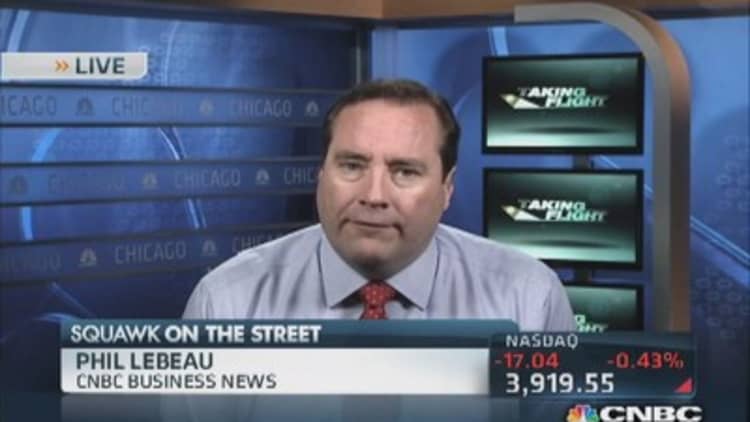
The order not only shows the strong demand for large aircraft in the Middle East, affirming the region's prominence as one of the fastest areas of traffic growth, but it also satisfies Airbus executives, who have found the A380 difficult to sell.
The Center of Aviation said in a March 2011 note, "The 2007 entry into service of the A380 was ill timed: it coincided with a deep financial crisis in many major air travel markets, with many developed economies still trying to find their way out of the slump today."
However, aviation analyst David Zara told CNBC, "The A380 fills a necessary niche in the market place for routes with high loads. It's the right aircraft for the mission. It's has legs and it's here to stay."
(Read more: Boeing, Airbus opt for steadier approach to deliveries)
Indeed, Merluzeau at G2 Solutions said, "The A380 order is perhaps as significant to me as the 777X launch. I believe that the Very Large Aircraft (VLA) market will rebound, not in huge numbers, but sufficiently to bridge us into the next decade where the 380 and perhaps the 748 will enjoy stronger demand."
Emirates dominance?
Merluzeau said the Airbus A380 order had broader implications for airline industry.
"This is also extremely worrisome for Emirates competition, with a record number of A380s and 777X in its portfolio by the early 2020s, Emirates could impose itself as the leading global carrier," he said.
(Read more: Tracking Dreamliners' every move inside the 787 ops center)
Howard Wheeldon of Wheeldon Strategic Advisory concurred, writing, "By whatever standards you measure this, the orders from Emirates Airlines for an additional 50 Airbus A380 super-jumbo aircraft, for 150 of the Boeing 777X are more than enough to confirm that this huge, powerful and very successful airline that is run by the formidable Tim Clark is not just a cut above the rest but also one that is destined very soon to be the most important airline in the world."
It was not just the large Gulf carriers who were showcasing their expansion plans. Low-cost carrier (LCC) flydubai ordered 75 737 MAXs and 11 737, totaling an $8.8 billion commitment, and revealing once more that there is a growth potential in the LCC market in the Middle East.


